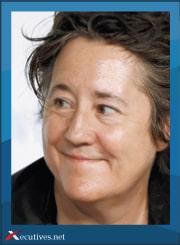
Christine Vachon, born in Manhattan, is a renowned American indie film producer and co-founder of Killer Films, together with Pamela Koffler. Her first feature, the movie «Poison», was awarded the Grand Jury Prize at the 1991 Sundance Film Festival. Since then Christine Vachon has produced dozens of films such as «Still Alice», «Dry Run», «Far From Heaven», «Boys don’t Cry», «Velvet Goldmine» and «Carol», an Academy Award-nominated film about an affair between a wealthy woman (Cate Blanchett) and a humble clerk. Set in the US during the early 1950s, the film is about the story of an affair between an a timid department store salesgirl (Rooney Mara), and an older married and wealthy woman, forced by her husband to give up her relationship. The film is based on a book by Patricia Highsmith.
In the interview with The Swiss Culture and Management Network Xecutives.net, Christine Vachon talks about two of her films, «Poison», a striking triptych of short films dealing with suppressed and transgressive gay sexuality and the AIDS crisis; and «Still Alice», a fantastic and touching movie starring Julianne Moore playing a professor suffering from Alzheimer. Christine Vachon offers insights into the job of a producer of indie films far from Hollywood. Christine Vachon will take part as a special guest in the Basel Gässli Film Festival 2019, hosted by Swiss film director and producer Giacun Caduff, where she will share with young filmmakers her insights on film-making.
Xecutives.net: Mrs. Vachon, you will soon be in Switzerland as well as a special guest for the Basel Gässli Film Festival 2019. Your name sounds very French. So your parents weren’t from France, but probably your grandparents?
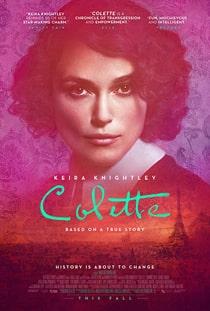
Christine Vachon: No, no. It’s my father’s name. But that’s a coincidence. My mother was actually from France. My father got the name the way a lot of Americans do – his great grandmother was actually from Quebec – but my mother was born in France and emigrated to America in her early Twenties. She grew up in the southwest of France, and then lived in Paris after the world war.
Xecutives.net: You have made a very remarkable career in the film business producing dozens of films. And I would like to ask you first, what was your own first memory of film, probably when you were a kid?
Christine Vachon: Well, I think like a lot of people my age, the first movie I ever went to see in a movie theater was Mary Poppins. I have a very distinct memory of spending most of my time crawling around the floor of the theater. I think it was Radio City Music Hall, looking for candy that people might have dropped. But I also grew up on the Upper West Side of Manhattan in New York City, where there are a lot of repertory cinemas. Sort of, iconic cinemas. Not many of them still exist. But there was the Thalia, there was the Regency, so I could go to movies by myself, or with friends. From a very early age, we had a lot of freedom.

So frequently, on the weekends, we would go see new movies or old movies. There was also a theater near us that ran dollar movies every weekend that were usually second run films, which is something that doesn’t really exist anymore, but it did then. So I went to the movies all the time.
Also, because my mother was French, I often went to see foreign language films with her, which she really went to see because she missed her country sometimes. Back in those days too, when people said they were going to go see an art film, that’s what they meant: It meant they were going to go see a foreign language film.
Xecutives.net: Okay. It’s a coincidence, probably – but you spontaneously said, Mary Poppins. What do you think about the new movie production? I saw it with my children. They are eight and ten years old. And they were totally amazed.
Christine Vachon: It was terrible. I thought it was awful. But I didn’t even make it through the first twenty minutes.
Xecutives.net: There were two movies that were really a family success for us – they were “Mary Poppins” and “Around The World In Eighty Days” by Frank Coraci, whom I met later on in Switzerland. I don’t know why, but it was the two movies the kids really liked, because there were so many different things in them, I don’t know. They had to laugh a lot. And finally they also had the chance to talk with Frank Coraci personally.
Christine Vachon: I mean I don’t have small children anymore. So, I don’t have to see those movies anymore.

Xecutives.net: Mrs. Vachon, how did you get then later into on the movie production business? It’s not a directorial job, you’re not an actor, it’s the business of producing. How did this start?
Christine Vachon: You know I went to college in Rhode Island, and then I came back to New York City in the early Eighties – well, mid Eighties, I suppose. It was a very exciting time. There was a lot of collision between the art world and the music world and fashion and film. A lot of great film makers were making their first movies then, like Jim Jarmush and Spike Lee, for example. And there wasn’t a lot of Hollywood productions happening in New York, which is very different from today. So it just felt like a very exciting time to get involved in something that felt new. It also – and this is something that I think doesn’t get talked about enough – it was the beginning of MTV and MTV required music videos. So suddenly there was an opportunity to work on all these music videos, some of which were incredibly creative. With crazy, crazy ideas. And it was really fun! So, that’s kind of how I started.
I started working in film production as production assistant, then second assistant director, first assistant director, things like that, and then along the way, I re-encountered my friend from college, Todd Haynes, and we started a company together. And then very soon after that, I started producing for him.
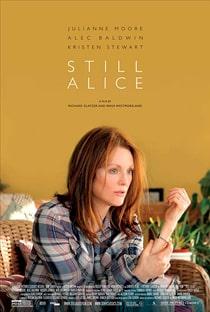
Xecutives.net: That was the time – 1991 – with “Poison”, I think. You produced the movie Poison in1991, a film written and directed by Todd Haynes starring Edith Meeks and Larry Maxwell. It consists of three stories. This movie is considered an early entry in the New Queer Cinema movement.
Christine Vachon: Yes, that was the first one.

Xecutives.net: Before we talk about your films, especially “Still Alice,” I would like to start with another artist. He said said something very interesting the other day. I met him in Vienna – the sculptor and artist Erwin Wurm. He has become known worldwide for his sculptural works, including his one minute sculptures and his “Fat Car” series. When I met him in Austria and he told me that in his opinion good art would always be the authentic confrontation with something in a certain time. He said that this is why it would often be very easy to determine when a work of art was made, whether in the Seventies, Sixties or Twenties of the last century. However, he says, it would be more difficult to define the language of the respective present. In retrospect, this is often easier to achieve. So then, what was it back then in 1991 – what was the reason to dedicate so much money and energy into “Poison?”
Christine Vachon: There were two reasons. One was that I’d seen Todd’s earlier film Superstar, The Karen Carpenter Story, and I had really recognized its originality and vision, and I knew that I really wanted to make Todd a partner of mine, hopefully for the rest of his career. And so far I’ve been able to do that.
The other reason was the AIDS crisis, which was a giant factor in what motivated the making of that film – the making of a lot of the early films in my career, which felt like we were desperate to tell stories before everybody died. It was a very bleak, difficult period.
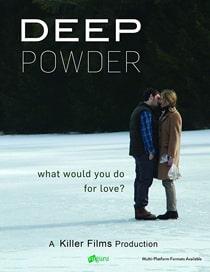
Xecutives.net: Then this is the kind of genuine truth seeking art work. So when I – it’s probably not really fair – but when I compare this movie and others of your movies with Avenger films or Transformers or Hollywood films, films that do have such a big success with hundreds of millions of people all over the world, I ask myself, what is the reason that people feel attracted to these movies, movies without a real story or background?
Christine Vachon: Why do people want to see superhero movies? You really want to know why? I think it’s pretty obvious. It’s a great escape. I don’t go see the Avengers. But I go see some of them, for the same reason anyone else does. For an escape. But I’m not the expert on why people want to see the Avengers and I don’t knock those movies! I don’t make them, but I don’t think they shouldn’t be made. I am so not a Hollywood film maker, I just don’t know what Hollywood is trying to do. It’s not where I live.

Xecutives.net: One of your most famous movies is “Still Alice”. I’ve watched about six of your films now in the last couple of days. “Still Alice” was the movie that most touched me. This film is based on the book of a bestselling author that is also very interesting, Lisa Genova. I didn’t know that before. She’s a neuroscientist, an author, a younger person still. And Julianne Moore plays Alice, a really intelligent professor who suddenly becomes aware that she’s suffering from a terrible disease, Alzheimer. This film goes very deep. I read that Richard Glatzer, one of the head directors, he was seriously ill. And he died in 2015. But what is the reason why this movie appears so authentic? There’s a whole set of people – there are probably over 400 people involved. How did you and Mr. Glatzer and Mr. Westmoreland – fashion a set that is so authentic?
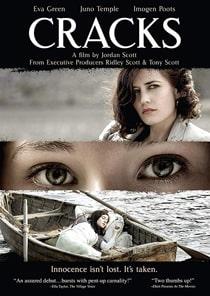
Christine Vachon: I mean I think that’s really so much about Julianne Moore. She’s an extraordinary actress. This is a role that she knew immediately that she wanted to do – she just brings that kind of rigor to everything she does. I don’t think she’s capable of giving a bad performance. We knew the movie was going to live or die based upon her performance because, you know, it’s very low budget and also its subject matter that – I mean, for as many people who come up to me and say they’ve seen the film, there’s just as many people who come up and say they want to see the film, but they’re afraid it will be too upsetting their mother, their father, their grandmother, their uncle, their aunt. Everybody has been touched by Alzheimer’s. So we knew for the film to be a success, her performance had to be extraordinarily strong. And we did everything we could to make sure that there was the room and the space for her to give as nuanced a performance as she did.
Xecutives.net: And the reason Richard Glatzer was so seriously ill, it had no effect on the movie?
Christine Vachon: I’m sure it did because I don’t know if you can separate what he was going through from what we were doing.
Xecutives.net: Maria Shriver, she was also an executive producer to that movie. What was her motivation in that movie? Why did she collaborate?
Christine Vachon: Maria Shriver is very active in Alzheimer charities and foundations here in the US.
Xecutives.net: Oh, so she was already active before so that was probably the reason?
Christine Vachon: Yes. It’s something she’s very passionate about.
Xecutives.net: And how was the collaboration with her? What was her contribution to this movie?
Christine Vachon: You know, she helped us a lot, especially when we were trying to get the word out about the film, reaching out to those foundations and to create a lot of awareness around it.

Xecutives.net: I would like to go back to Julianne Moore again because of “Still Alice”. I’ve just watched “Kingsman: The Golden Circle,” a film I personally like, and this action spy comedy is a film produced by Matthew Vaugn, with a brilliant Julianne Moore as well, a totally different film genre. She is Poppy Adams, a weird bad bitch, trying to kill everybody. Julianne Moore is an actress who can do simply everything!
Christine Vachon: Yes, she can.
Xecutives.net: What is it about her that she can, where other people can’t?
Christine Vachon: You know, look, who knows, I don’t know what the outcome is that makes one actor better than another. I know that she takes a rigorous approachto everything she does. But I don’t really know what her internal method is.
Xecutives.net: You are coming to Basel and you will meet a lot of younger film makers, new talents that are around. You have worked with a lot of younger film talents in the last couple of years. Do you see any difference between this latest generation now compared to other generations in the last twenty years? What is coming?

Christine Vachon: I really love working with young film makers because they tend to be telling the story they’ve been waiting their whole life to tell. One of the things that younger film makers are coming to the table with now is no fear or suspicion of all the different platforms. They are really coming at it as storytellers and are not as obsessed with their movies going out in the theatres. They’re more obsessed with getting their stories out to as many people as possible, and with different forms of storytelling. Like episodic, or limited series, as well as feature films that may be made just for streaming, and not for theatrical release. So that I find very refreshing.
Xecutives.net: Mrs. Vachon, this is not your first trip to Switzerland. I believe you were here in 1991 because of “Poison” and the Locarno film festival.

Christine Vachon: I’ve been back a million times. I got a big award at Locarno a few years ago – well, more than a few years ago, like ten or fifteen years ago. I have attended the Zurich film festival a number of times. I was at the Pink Apple festival either last spring or the spring before – I can’t remember – but I go to Switzerland a lot.
Xecutives.net: Mrs. Vachon, I wish you a great trip to Switzerland and a great stay in Switzerland. Thank you for your time taken for this interview and I wish you all the best for your future projects.
(C) 2019 by Christian Dueblin. All rights reserved. Other publications are only permitted with the express permission of the author.
See also other movie business related interviews:
Xecutives.net is a proud supporter of the Gässli Filmvestival Basel.
- Gässli Filmfestival Basel
- Christine Vachon on Wikipedia
- Christine Vachon on IMDb




